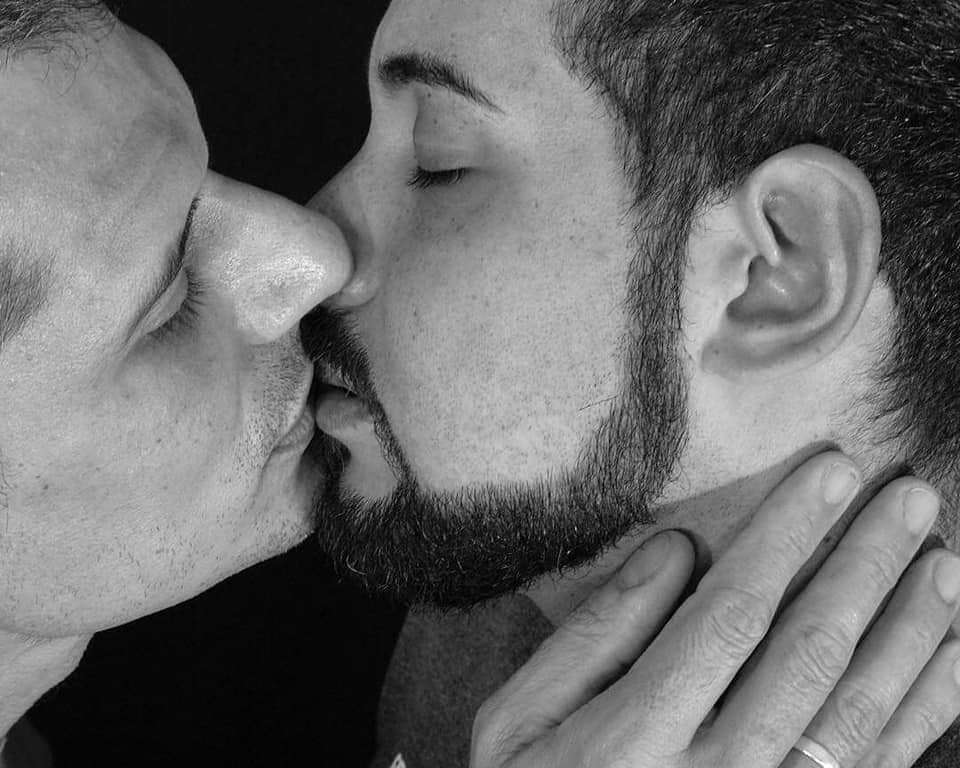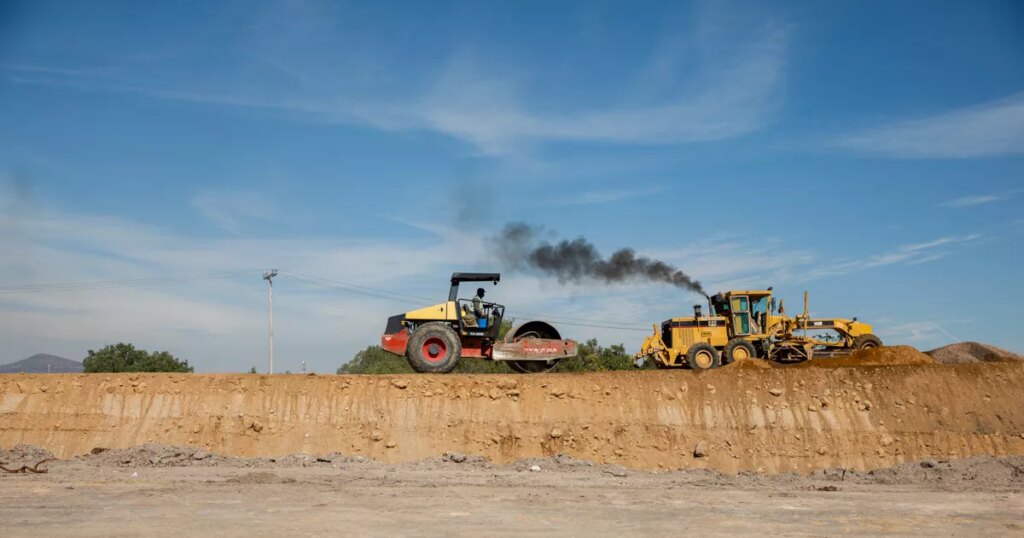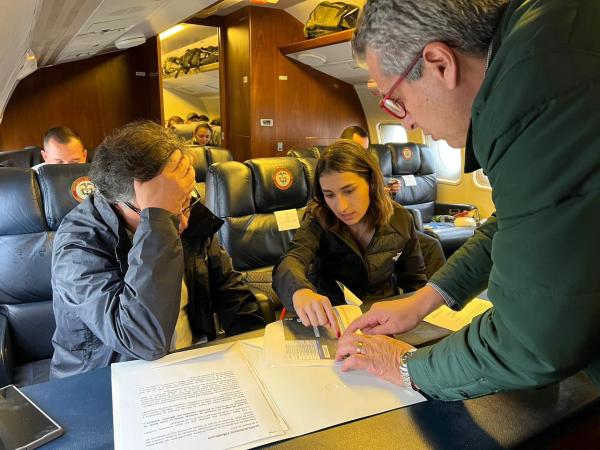Lachy and Adiel married on October 13, 2022. They dreamed of the idea since 2018. They fought, from their activism in the LGBTIQ+ movement, and from their understanding of faith, for love to be Law. Their marriage, simple and expeditious , is full of meanings; among them, the joy produced by the battles won.
Since the ratification of the Family Code, by popular vote, there have been more than four hundred acts of marriage between people of the same sex, in which unions between men prevail.
Marriage, like any institution, has a political charge. In this case, it is so in a more evident, profound and decisive way. At least for the moment, whether or not there is awareness of it, marriage between people of the same sex in Cuba is, in addition to the celebration of affection, a legal pact, a social event, a political fact, a sentence in favor of another order of justice, more inclusive, dignifying and liberating.
As an interesting fact, and I only note it without any further pretense of analysis, when looking at the public images of these events, the diversity of models and potential types of relationships behind them are obvious. Asking questions to the photos is an exciting exercise.
In an attempt to delve into this process and its meanings, I talk to a couple of men who decided to get married, taking advantage of the benefits of the law. Men who carried out strong previous activism and who know that the fight for equality did not end with the approval of the Family Code. Men who also see in this act their relationship with God and his conviction in the defense of Human Rights.
What lessons has that fight left?
byehe: The fight for the rights contained in the Family Code that favor the LGBTIQ+ community did not begin in 2019 when it was announced that the popular consultation and referendum would take place after the Constitution was approved. This fight is from much earlier, at least in a consistent and sustained manner since 2012, when equal marriage began to be publicly demanded as a right. Therefore, it must be recognized that this Code is largely the result of more than 10 years of struggle and pressure by Cuban LGBTIQ+ activism, and also by feminists, which leaves as the first lesson that Cuban civil society, when it organizes and fight coherently for a common goal can achieve great results.
In this case, the influence on political decision-makers determined positively, as well as the combined work of activism with academia. In the same way, I think that in this process another learning was for us as an LGBTIQ+ community. Although many people question the existence of such a community, or of a “Cuban LGBTIQ+ movement”, the truth is that starting fundamentally from 2008 when the Cuban Days against Homophobia and Transphobia began, and then after May 2019 when a takeoff took place. In addition to the independent activism that already existed, we have experienced an ascending process of community building and the LGBTIQ+ movement in Cuba, whose strength and potential were strongly displayed during the reform of the Code. The learning then in this sense is that we have managed to reach a maturity as a collective in Cuba, although sometimes we do not fully recognize it.
Lachy: For my part, in this process I learned that every fight takes time, talent, economy, efforts, delivery, and courage. There are many people who bet everything. I learned that we have to empower ourselves and go beyond fears and threats. And above all, I learned to admire and love my husband much more because of his lights, his passion for justice and the time he dedicated to the fight. I know that there were many more who were involved in it, but he touches me more closely because I saw him in his day to day. I also learned that the truth can do everything. That human rights are there to defend them.
Could you tell us what you felt the moment the approval of the Code was an irreversible fact?
L: While waiting for the result, he told me: when they give it to me, I’m going to scream and run. But when that moment came, which was delayed, I was left without expression. I didn’t cry, I didn’t laugh, I didn’t run. Emotion paralyzed my being. Later yes: I was able to laugh and cry.
A: September 25 was one of the most exciting days of my life. That Sunday from the activism we were monitoring the entire voting process: pending every news item that came out, every post on social networks. Then when the countdown started it was the most exciting part. Many of us went to the schools to witness the process with the votes and we immediately ran to give the report of each school through the different networks. Many people mobilized. It was exciting to receive each piece of news confirming that the YES was the majority in each school.
That day my husband and I stayed until late at night waiting for the final part of the National Electoral Council. We went to sleep without knowing the result yet. Around eight in the morning, Lisney, an activist friend, calls me: “what are you doing sleeping? did you already know? WE WON! And I was so asleep that I couldn’t even react. I woke up Lachy and we turned on the TV. There was the news!; 66% in favor. We processed the information for a while, and then, as Lachy says, we cried, laughed, hugged, and toasted the whole family with a citron that we had saved for the occasion.
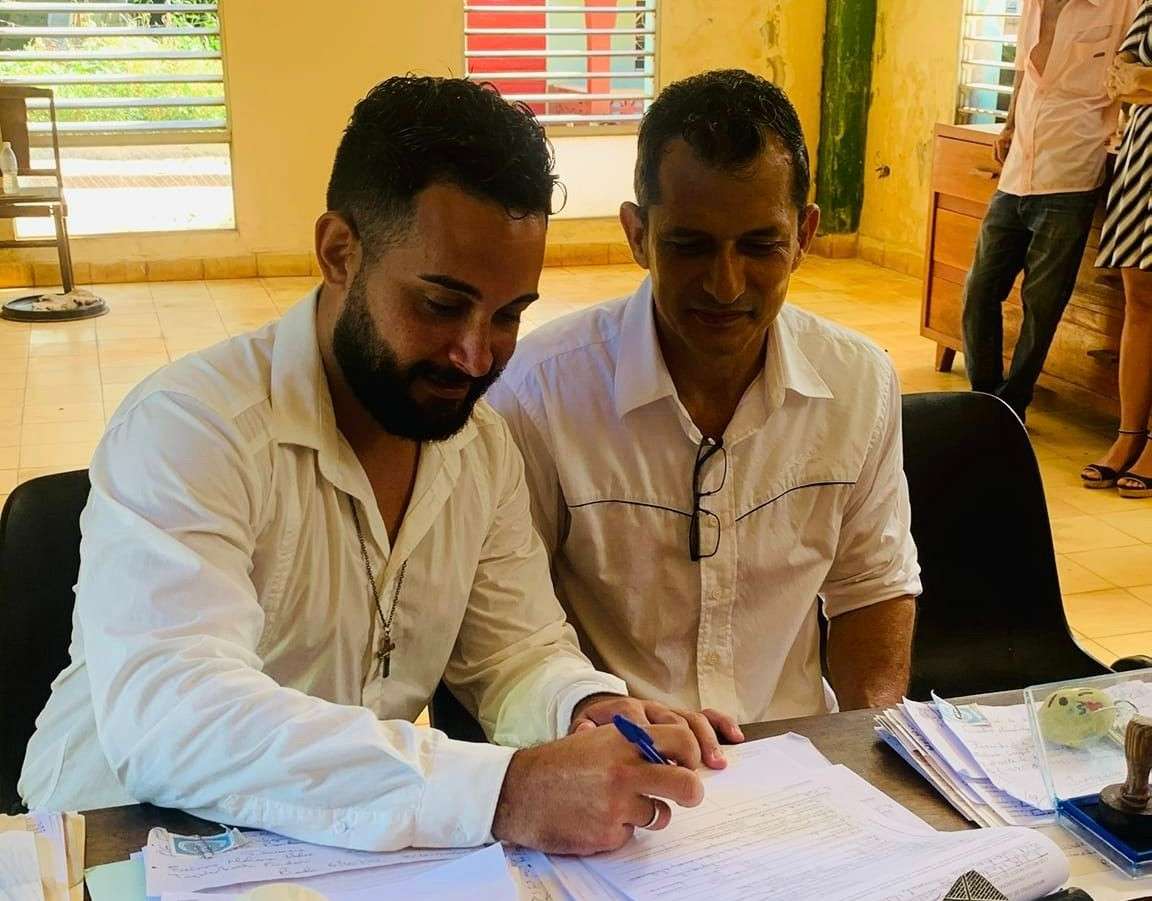
Why did they decide to get married?
A: I think getting married was the natural step after the approval of the Family Code. Not because it was an obligation, but because it was a long overdue dream. We had that plan since 2018. And we couldn’t make it happen then. We always said that our marriage was going to be legal or it wouldn’t be. So it was. On the other hand, I was already planning to live in Brazil for a while. We knew that getting married would help ease the process for Lachy to go with me. Equal marriage is also legal in Brazil. So nothing, for those reasons we decided to get married on October 13. Although the ceremony with family and friends is still pending, which we plan to do in Varadero, and with the blessing of the Church, which will be officiated by an Episcopal priest and a Baptist pastor, who are our respective Christian denominations.
L: Yes, we got married because it was one of our dreams. And because it is also our right to do so.
How was the wedding process?
A: It was pretty quick. I was the one who suggested to Lachy not to delay the matter too much, and I suggested we get married in Bolondrón. The reason: there are fewer queues for people to get married. And because it is also the town where we met. It also had that symbolic charge. So, Lachy went to the Bolondrón Registry, spoke to the registrar, set the date and that’s it. It was so easy. There was no obstacle. That day only Lachy’s parents, my mother and brother, and the two witnesses were present, as well as the friend who took the photos. Oh, and the press that was aware of the “event.” It was very simple but very emotional.
L: Our process, as I said before, was a desire that was gestated for years, desired, visualized in our dreams. And having approved the Family Code, we embraced the opportunity and became married.
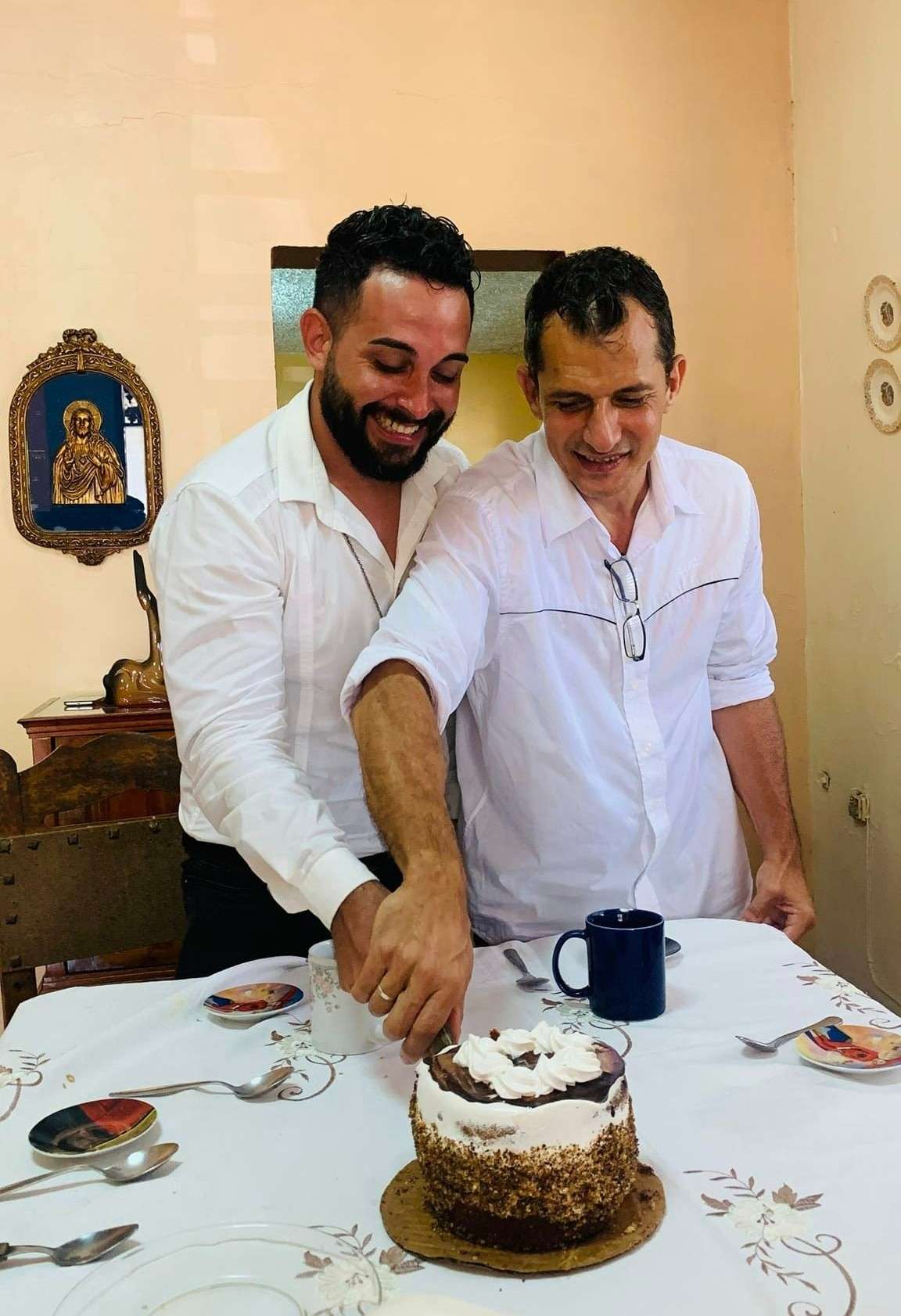
What does it mean to be a diversity activist and to be formally married before the law?
A: Activism is part of my essence as a person. I don’t think it could be anything else. It gives me meaning to live and stimulates me. In the same way, activism makes me grow in the face of difficulties, because carrying it out presupposes an enormous challenge, especially in Cuba where any form of activism outside of the institutional sphere, like the one I carry out, is viewed with suspicion and prejudice by government authorities, for which many times they are victims of harassment and obstacles. All of that is challenging for me, and I like it. On the other hand, I believe that doing activism does make a difference in society, it makes it advance and grow, in addition to also making a great difference in the lives of the people who are benefited by this progress. Seeing that makes me feel so satisfied that I always repeat myself: it is worth so much sacrifice. I experienced that feeling with the Family Code. And seeing how one of the fruits was that we could finally get married, because it added even more joy to the process.
L: Although my contribution to activism is small, I feel part of a big family that fights together for our human rights. Together we share the desire to achieve a more just and inclusive Cuban society, and we know that we still have much more to achieve. Activism never rests. The process with the Family Code showed us that together we can work and see the results. And being married now gives us the same rights that heterosexual couples enjoyed before as a privilege. More and more we are naturalizing love without distinction as a society, and we fulfill all the same duties while enjoying the same rights.
